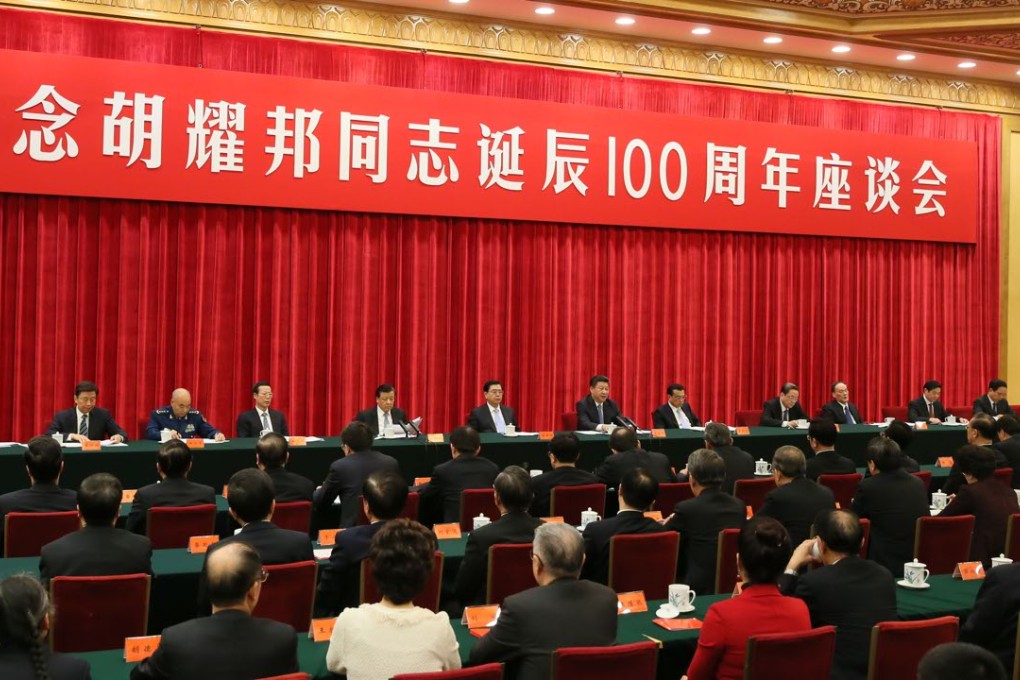China’s official amnesia over the legacy of Hu Yaobang, the man whose death inspired the Tiananmen protests

Doctored front pages and selective omissions are two of the techniques Beijing has used to filter out the reform legacy of late Communist Party leader Hu Yaobang from high-profile commemorations on the centenary of the reformist’s birth.
The most recent censorship was on the weekend when state broadcaster CCTV removed a photograph of Hu associate and late purged party leader Zhao Ziyang from footage of the front page of a 1982 edition of the Communist Party’s mouthpiece.
In an official documentary about Hu aired on Saturday, Zhao’s photo was replaced with that of a lower-ranked Standing Committee member.
Hu was sidelined in 1987 for tolerating “bourgeois liberalisation” and his death in 1989 sparked nationwide pro-democracy protests. Zhao was the party’s general secretary who was purged in the aftermath of the demonstrations. The pair were seen by many as liberals within the party.
“They are commemorating their Hu Yaobang, not ours,” one WeChat user wrote.
Read more: The battle of the century: Defining the legacy of China’s late liberal leader Hu Yaobang
That official line is in contrast to a ceremony a decade ago to mark the 90th anniversary of Hu’s birth.